
Welcome to the February WSU Sustainability Newsletter!
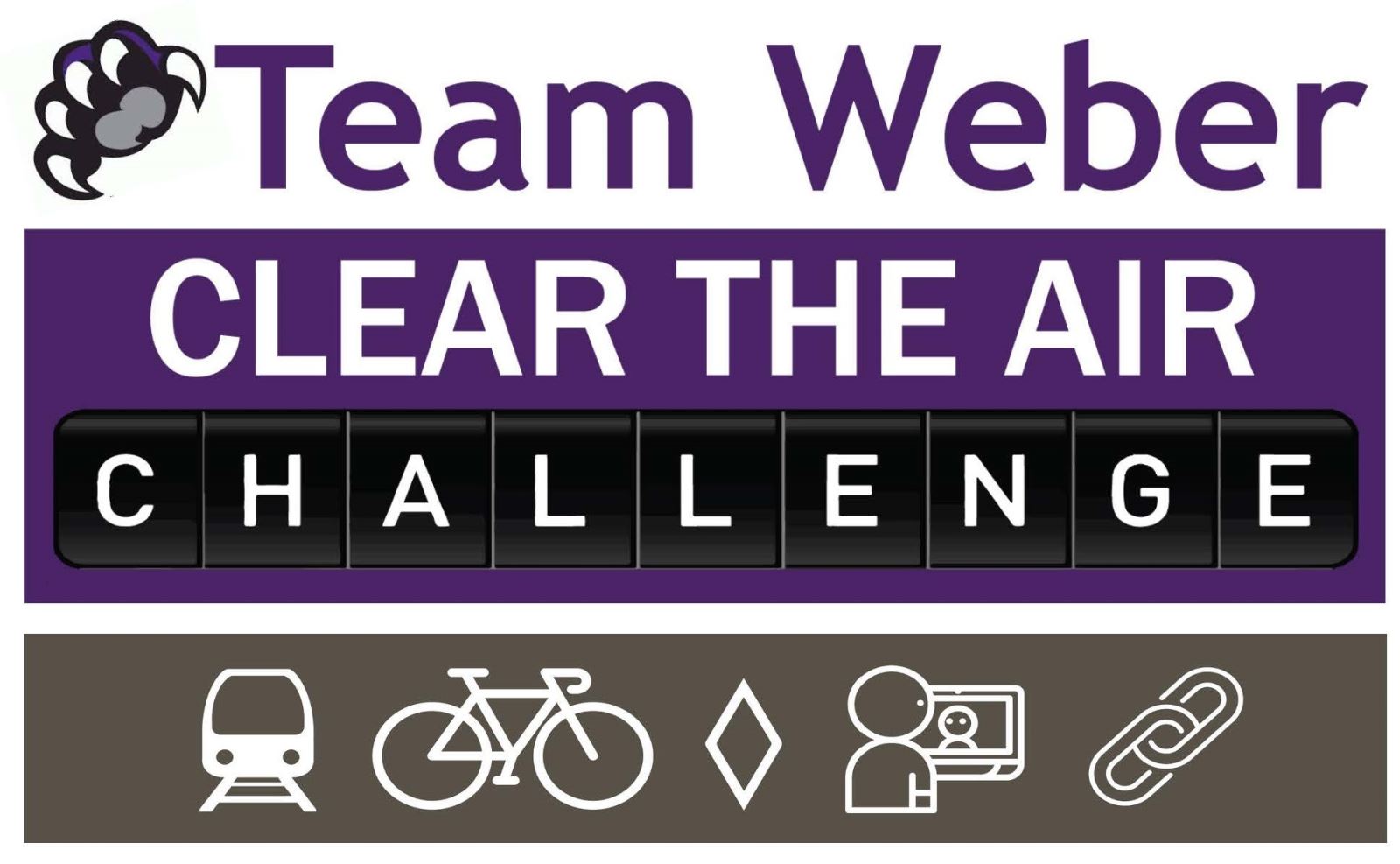
Clean the Air Challenge
Weber State University is competing in the state-wide Clear the Air Challenge with the help of WSU Employee Wellness, WSU Student Wellness, the Energy and Sustainability Office and the Environmental Ambassadors. The Clear the Air Challenge is a competition aimed at getting people to drive less and drive smarter to improve our air quality. Participating in this challenge gives you the chance to compete with fellow students, faculty and staff to win prizes, Wellness points, and Green Team points while helping WSU take on the University of Utah! By participating in the Clear the Air Challenge, you are actively helping to limit the health-harming PM2.5 and other emissions during a time when the inversion traps our emissions along the Wasatch Front. Help Team Weber Clear the Air all throughout the month of February. It is not too late to sign up!
How to join?
1. Sign up at https://travelwisetracker.com/#/
2. Join a Network on the Weber State Team (faculty or staff select associated division)
3. Start logging trips and winning prizes!
.jpg) "Climate Change: Examining the Facts" talk by Dan Bedford
"Climate Change: Examining the Facts" talk by Dan Bedford
On February 12th at 7 p.m. in the Hurst Center, Dumke Legacy Hall, Dan Bedford, author and geography professor, will talk on the 160 year perspective on the science of climate change as a part of the Weber Historical Society's Spring Lecture Series. Is the world getting warmer? Are humans really causing it? Does it matter if they are? And how do we know? This presentation will address these questions, and others, by taking a tour through the history of the science of climate change.
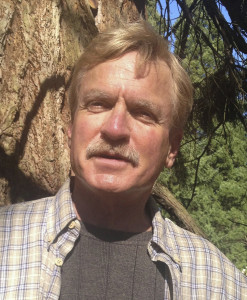 "Age of Fire: Living in the Land of the Flames" Campus Talk by Gary Ferguson
"Age of Fire: Living in the Land of the Flames" Campus Talk by Gary Ferguson
Award-winning science writer Gary Ferguson will be giving a rich, multi-media presentation, “The Age of Fire: Living in the Land of the Flames,” based on his recent book. Ferguson and his spouse, cultural psychologist, Dr. Mary Clare, will also be visiting with classes and faculty. The campus talk is on the WSU Ogden campus at 12:30-1:30 p.m. in Elizabeth Hall, Room 229. This event is free and open to the public.
 Intermountain Sustainability Summit, Feb. 28 to March 2
Intermountain Sustainability Summit, Feb. 28 to March 2
The Crossroads Project opens the Summit with an evocative performance grounded in science, and elevated by music and art at the Peery’s Egyptian Theater on Wed., Feb. 28th. Doors open at 6:15 p.m. and the performance starts at 7 p.m. The performance is free and open to all over the age of 8.
On March 1st, the Summit will host keynote Naomi Oreskes, the Eco Expo Hall, the Student Poster Contest and over 20 sessions. The sessions will be focused on five tracks:
1. Green Buildings
2. Clean Energy Infrastructure
3. Urban Water
4. Sustainability
5. Engaged Conversations
March 2nd the Summit hosts four Summit-affiliated workshops:
1. “Let’s Talk Climate — Applied Research and Practical Guidance for Local Climate Engagement” from 8:30 a.m. – 12:30 p.m.
2. “Taking Advantage of Who You Are— Climate Change Communication for Non-Scientists, Scientists and Everyone in Between” from 1:30 p.m. – 5 p.m,
3. "Demystifying Carbon Neutrality — Charting a Path for Building and Campus Managers" from 1:30 p.m. – 5 p.m.
4. "LEED Green Associate — Exam Prep" from 8:30 a.m. – 5 p.m.
Enhance your ability to communicate about climate change. Register for the Let's Talk Climate workshop to ground yourself in the latest climate communication research. Follow this with the Taking Advantage of Who You Are workshop, designed to help you find and develop your unique voice to tell the climate story. Are you looking to design or build green buildings? Check out the Demystifying Carbon Neutral, or the LEED Green Associates Exam Prep workshops.
You can learn more about the Intermountain Sustainability Summit on the website, or register here.
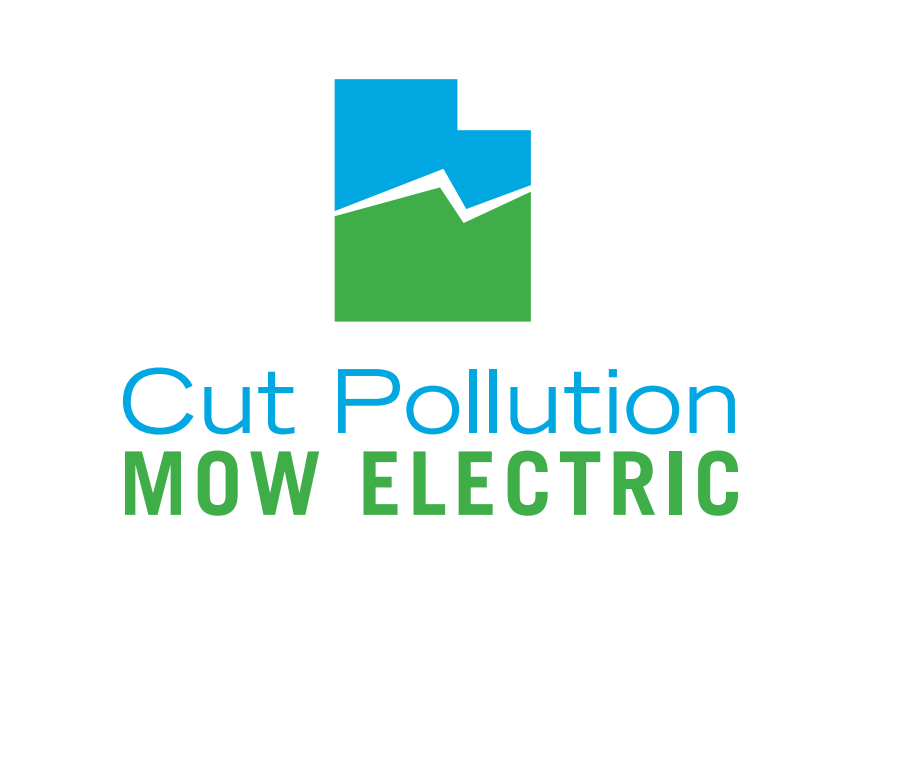 Cut Pollution- Mow Electric Community Program
Cut Pollution- Mow Electric Community Program
Weber State University’s sustainability offices, in partnership with the Weber-Morgan and Davis County Health Departments, are hosting the Cut Pollution – Mow Electric program to promote cleaner air and healthier lives in Utah.
Did you know that running a gas-powered lawn mower for ONE hour is equal to driving a car 160 miles? The Cut Pollution - Mow Electric program helps Utahns improve local air quality by going electric.
Those who enter and are selected through an online lottery can turn in their operable gas-powered mower and receive a new Kobalt 40-volt cordless electric lawn mower with mulching capability for $100. Fee waivers are available for those in need. Typical retail price of the electric mower is $329.
Utahns who live in areas that regularly experience poor air quality (EPA air-quality non-attainment areas) are eligible and may participate in the program by entering the randomized online lottery. Applications will be accepted from March 1 through 30, with winner notifications going out April 6. Those selected will have three days to pay $100 in advance and choose an exchange time on Saturday, April 21.
The Mow Electric program has 762 mowers available. Funding was made possible with grants from the Utah Clean Air Partnership (UCAIR), the Utah Department of Environmental Quality (DEQ), Weber State University’s sustainability offices, and the Davis County and Weber-Morgan Health Departments.
Learn more by attending a workshop this March. Details at Weber.edu/MowElectric
Student/ Faculty Sustainability Research Award Deadline
_300x225.jpg) Student/Faculty Sustainability Research Award deadline is coming up fast on March 1st! For consideration, the form below must be completed, and all submission documents/information must be emailed to Dr. Christy Call at Ccall2@weber.edu by March 1, 2018.
Student/Faculty Sustainability Research Award deadline is coming up fast on March 1st! For consideration, the form below must be completed, and all submission documents/information must be emailed to Dr. Christy Call at Ccall2@weber.edu by March 1, 2018.
_500x587.jpg) Welcome Kayla Hickman! WSU's New Green Department Manager
Welcome Kayla Hickman! WSU's New Green Department Manager
The Energy and Sustainability Office (ESO) is excited to introduce their newest team member Kayla Hickman. The ESO was granted an AmeriCorps member through Utah Conservation Corps to assist the office in managing the Green Department Certification Program. Kayla is a recent graduate from George Mason University (GMU) with a Bachelors of Arts in Environmental and Sustainability Studies. As a student, Kayla interned with GMU’s Office of Sustainability to assist with the Sustainability Tracking Assessment & Rating System (STARS) report, improve waste diversion campus wide, and improve waste tracking and data collection. Within this new position, she is excited to get additional educational, outreach and communication experience.
The Green Department Certification Program provides Weber State University’s staff and faculty with the opportunity to help WSU achieve its sustainability goals. Green Departments all around campus are helping foster sustainable behaviors in the office while building a sense of unity within their departments. There are over 50 departments within the Green Certification program, and ESO hopes, with the additional assistance, to double that number by the end of the year. During Kayla’s year of service, she hopes to act not only as the program manager, but as a sustainability mentor for faculty and staff at WSU.
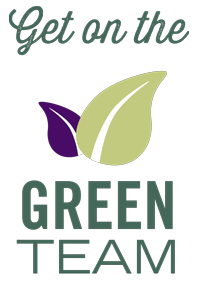 Congratulations Green Certified Departments
Congratulations Green Certified Departments
The Energy & Sustainability Office is proud to announce that the following departments have recently achieved Green Department Certification (since November 2017):
Green
- History
- Center for Community Engaged Learning
Gold
- Sociology & Anthropology
- Botany
- Davis Testing Center
Silver
- Dean’s Office: College of Social & Behavioral Sciences
- Application Development Services
- Campus Recreation
- Athletic Training & Nutrition
- Health Promotion and Human Performance
- Upward Bound
Bronze
- Facilities Management: Custodial Department
- Nursing
- Foreign Languages
New Green Teams
- Walker Institute
- President’s Office
Please congratulate your colleagues on their green achievements when you see them and welcome our new green teams!
Get on the Green Team
If you are interested in getting your office or department involved in the Green Certification Program, please contact Kayla Hickman at kaylahickman@weber.edu or visit https://www.weber.edu/sustainability/GreenDept.html.
The purpose of the Green Department Program is to engage WSU offices and departments in the work of making the entire university more sustainable and carbon neutral. The program is voluntary and competitive. Participating departments assemble a green team and acquire points through sustainable practices. The number of points achieved determines certification at the bronze, silver, gold, or green levels.
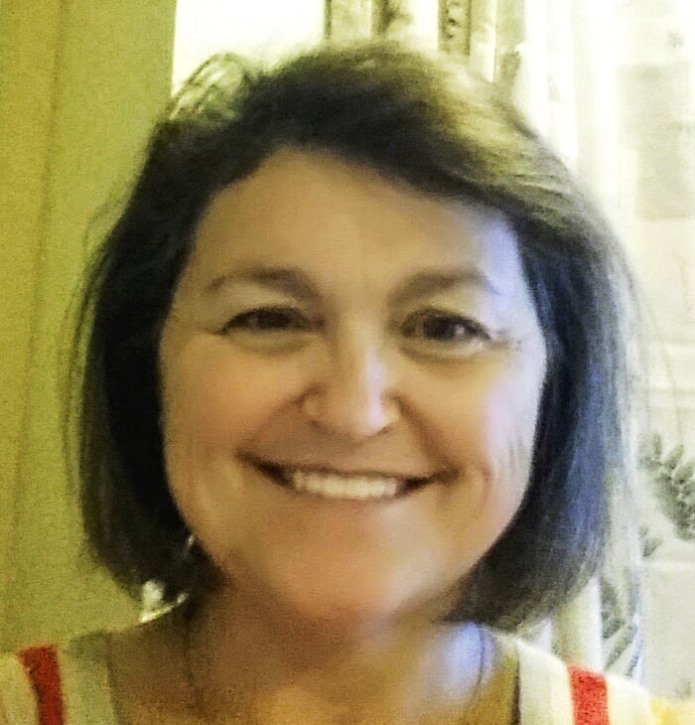 Green Spotlight: Jenna Daniels
Green Spotlight: Jenna Daniels
The Department of History is one the newest departments to achieve Green certification through the Green Department Program. History, with fantastic leadership from Jenna Daniels and Dr. Sara Dant, achieved Green certification in a little over six months. They have also both been great mentors and avid recruiters of additional green teams within the College of Social & Behavioral Sciences. Jenn Bodine, of the Energy and Sustainability Office (ESO), sat down with Jenna to learn more about her personal interest in sustainability and her experience with the Green Department Program.
ESO: What first interested you in sustainability?
Jenna: About ten years ago, Logan City, which is where I live, started a recycling program and I became really aware of my waste production at that time. I was shocked to see how much I was able to put in my blue recycling can and how little I needed to put in the trash bin. This made me think of other ways that I could reduce waste throughout my life.
ESO: Why did you get involved in the Green Department Program?
Jenna: Nicole Gabor, in the Political Science and Philosophy Department, recruited History. It was also good timing because we were moving into the old Science Lab building. We figured it would be easier to get everyone on board at this time because the staff and faculty were already facing a number of changes anyway with the move.
ESO: What accomplishment are you most proud of?
Jenna: I am most proud of the fact that our department has been very supportive of the program and has worked together really well to achieve our goals. Dr. Dant has been a fantastic leader and everyone respects her opinion on these matters because environmental history is her specialty.
ESO: What was your greatest challenge and did you resolve it? Or what points are the most difficult for your office to achieve?
Jenna: None of the points were that difficult to achieve. We did decide to hold off on getting rid of space heaters, mini refrigerators, and personal printers until we move into the new building. We know that the new Lindquist Hall will be more comfortable and functional and then it will be easy to give up those items and achieve those points.
ESO: What advice would you give to others that are just getting started?
Jenna: Don’t get frustrated and don’t give up. Call Jenn (or Kayla) for help when you need it. They are always there and happy to help. Don’t allow the spreadsheet to overwhelm you. There are lots of people that have gone through this program and you can ask them for advice and help too. Also, allow the friendly competition between departments to help fuel your department’s ambition.
ESO: What sustainability change could people make in their own lives that would be simple but have great impact?
Jenna: Be aware of your waste production and find ways to reduce waste on the front-end. Make simple changes like adjusting your thermostat or being mindful of what you purchase when you shop. When you go to purchase your next car, look for fuel efficient options.
ESO: Has this program influenced you in your home life?
Jenna: This program has reinforced what I was already doing at home with regard to waste reduction. But it also got me to consider buying greener products for my home too. Now I look for dish soaps, shampoos, etc. that are more environmentally friendly. I would also have to say that having grandchildren has really impacted my behavior. Having grandchildren makes you realize that the choices you make today will have an impact on their future.
